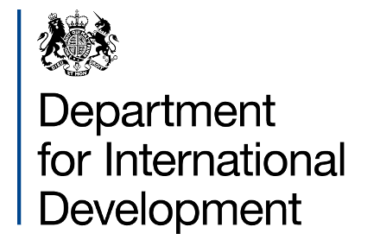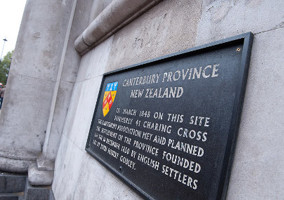A government scheme to help development charities during the coronavirus crisis is difficult to access and risks becoming mired in “bureaucratic sludge”, according to experts.
The criticism comes as data shows that only three charities have formally approached the Department for International Development about one of its schemes offering financial relief, even though more than 250 charities are potentially eligible.
The data was collected during May, before the announcement that DFID is to be merged with the Foreign Office.
Financial relief
The scheme was designed in part to “help private sector and civil society partners manage the impacts” of the pandemic, according to a letter sent to all DFID suppliers by the international development minister on 1 May.
Charities could apply for financial relief “as a last resort and on a case-by-case basis” if they held DFID contracts, in the form of advance payments or continued payments on programmes which had been paused, the letter said.
Three charities, six contracts
However, figures seen by Civil Society News show that only three charities formally contacted DFID about the scheme last month.
The charities all requested advance payments, and none asked for help after pausing overseas programmes. The requests covered six separate contracts, two of which were withdrawn “as they were not considered suitable to qualify” for support. DFID is still assessing whether to approve advance payments worth a total of £1.2m on the remaining four contracts.
One private supplier has applied for an advance contract payment. That application, worth £300,000, is also still under consideration.
Poor communication
Graham MacKay, the chief operating officer at the aid umbrella body Bond, told Civil Society News he “was surprised at just how low [the uptake] was”, and suggested that one explanation might lie with poor communication of the scheme.
McKay said: “The actual guidance was on a portal. It was not on a gov.uk site, which may have made access difficult. So the rumours got ahead of the actuality on it.”
One aid expert, who is familiar with the scheme and asked to remain anonymous, suggested that charities would have been willing to engage with DFID but were put off applying because the process appeared to be so long and uncertain.
They said: “The fear is bureaucratic sludge rather than skeletons falling out of cupboards [when scrutinised for financial support], I think. For something that is supposed to be a quick and easy fix, there are instead unnecessarily long, extended conversations.
“The basic thing about payment in advance is that it is the simplest thing DFID is in a position to do, in that it’s not more money, it’s just different timing.”
They added: “If NGOs are still in conversation four to six weeks later, what does that tell you about the process? It should be the easiest bit of the whole thing.”
Worrying about the future
Experts also said that the scheme, with its focus on short-term cash flow, was poorly suited to the challenges facing smaller development charities in particular.
Several sources inside the development sector confirmed that uncertainty about future multi-year DFID contracts and long-term financial security were bigger risks for many charities than short-term cash flow, even before this week's decision to merge DFID with the Foreign Office.
McKay said: “Let’s take this in good faith, that DFID are trying to do what they can to make life just a little bit easier for struggling NGOs. But the conversation we are having with members is not necessarily about this year. It is not about between now and December.
“They are worried about the long-term damage to their financing and programming over the next 18 months and what that implies for the future. Therefore, whilst perhaps well intentioned – if in some implementation less than ideal – it’s kind of missing the point, and is a displacement away from the integrity of the charity sector and what it does on international development.”
McKay added: “It’s the future that’s the worry.”
DFID: £45m pledged
A DFID spokesperson said: “Our suppliers, both in the private and charity sectors, are vital in helping us to tackle the coronavirus pandemic and protect the most vulnerable people in the world’s poorest countries.
“That is why we have pledged £45m of funding to NGOs to fight coronavirus, and, where appropriate, amended the contracts of suppliers or put in place special measures to ease their financial pressures.”
DFID is due to review the future of the financial relief scheme this month.
Related articles












